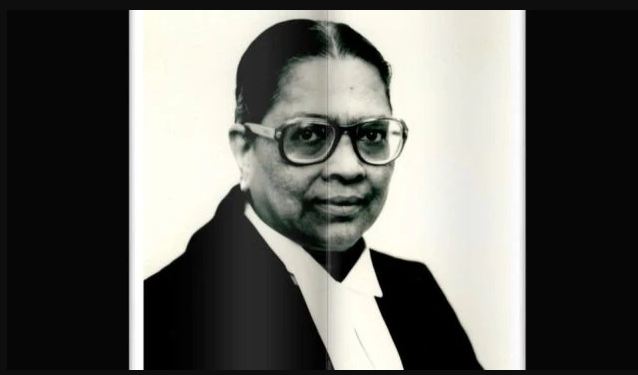India’s first female Justice Fathima Beevi of the Supreme Court passes away
Mallapuram — Justice Fathima Beevi, the first Muslim woman judge of India’s Supreme Court and a trailblazer for women in the legal profession, passed away at a private hospital in Kerala’s Kollam on Thursday. She was 96 years old. Her appointment as a judge had been a source of inspiration for women across the country.
Justice Beevi was widely regarded as a role model for gender justice and women’s empowerment. Kerala Chief Minister Pinarayi Vijayan, in his condolence message, described her life as a remarkable chapter in women’s empowerment in the state. He acknowledged her contribution in putting Kerala on the map as the state that produced the first woman judge in India.
Vijayan praised Justice Beevi for her resilience and determination to overcome obstacles in life, stating that her life serves as an inspiration to society, particularly women. He also highlighted her expertise in constitutional matters, which she demonstrated during her tenure as the governor of Tamil Nadu.
Born in Pathanamthitta in 1927, Justice Beevi was the eldest of eight children. Her father, Annaveetil Meera Sahib, a government employee, played a crucial role in supporting and encouraging her educational aspirations, including pursuing higher education, which was uncommon for Muslim girls at that time.
Initially inclined towards a post-graduation in Chemistry, Justice Beevi’s father persuaded her to pursue a career in law. He believed that a law degree would open doors to greater opportunities. In 1950, she became the first woman law graduate to receive a gold medal from the Bar Council after passing the mandatory exam for enrollment as a lawyer.
She started her legal career as a junior advocate in Kollam district court, where her presence as a Muslim woman wearing a headscarf faced opposition from orthodox elements within the Muslim community. However, she persevered and shattered glass ceilings throughout her journey.
Justice Beevi joined the judicial service as a munsiff (magistrate) and eventually became the district sessions judge in 1974. In 1983, she was appointed as a judge of the Kerala High Court and later elevated to the Supreme Court in 1989. Her tenure as a judge of the Supreme Court, which lasted until 1992, was marked by her commitment to equality and upholding constitutional provisions.
After retiring from the apex court, Justice Beevi served as a member of the National Human Rights Commission and as the governor of Tamil Nadu. As the governor, she made headlines for her decision to reject the mercy pleas of the individuals convicted in the Rajiv Gandhi assassination case.
One of her notable acts as governor was inviting J. Jayalalithaa, then the leader of the AIADMK party, to form the government in Tamil Nadu in 2001, despite her disqualification from contesting elections due to a corruption conviction. Justice Beevi believed that the majority party had chosen Jayalalithaa as their leader and consulted Supreme Court judges before making the decision.
Reflecting on her groundbreaking achievements, Justice Beevi emphasized that her appointment to the Supreme Court was not due to a lack of competent women but rather the responsibility of the executive to make such appointments. She also expressed her view that retired Supreme Court judges taking up post-retirement appointments was not inherently wrong as long as they acted ethically and did not align themselves with any particular interest.
Justice Fathima Beevi’s legacy as a pioneering figure in the legal profession and a champion for women’s rights will continue to inspire generations to come. Her contributions to the judiciary and her unwavering commitment to justice and equality will be remembered fondly.



